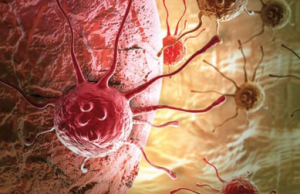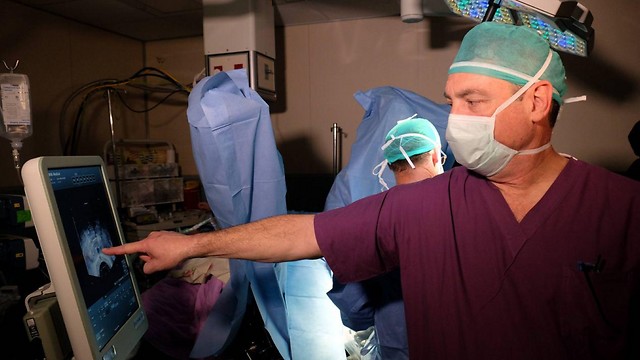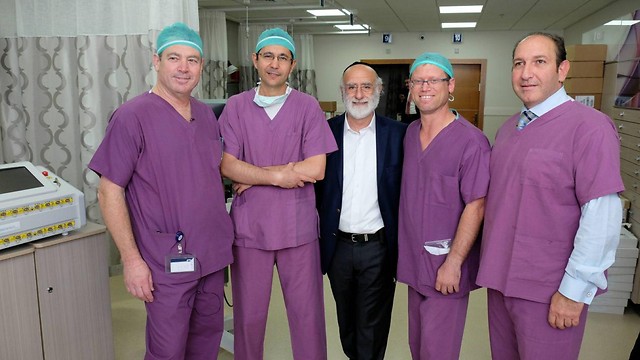
Prof. Avigdor Scherz & Prof. Yoram Salomon of the Weizmann Institute develop a groundbreaking treatment for prostate cancer patients that targets the tumor without damaging genitalia, urinary tract, or general quality of life.
By Rotem Elizera
The incidence of prostate cancer, especially among men, in Israel has increased in the past two decades. However, Professor Avigdor Scherz and Professor Yoram Salomon of the Weizmann Institute have developed a groundbreaking treatment, bearing good news for the patients diagnosed with the deadly disease.

Special prostate cancer treatment. – Photo: Yariv Katz
Prostate cancer patients face a dilemma today: Undergoing prostate surgery and radiation, which often causes erectile dysfunction and urinary retention, or staying under “active surveillance,” which could allow the cancer to metastasize. Most prostate cancer patients choose the latter.
However, the two professors’ treatment does not require cancer patients to choose either. In fact, it narrowly targets tumors on the prostate without damaging genitalia, urinary tract, or general quality of life.
The treatment is injected intravenously for 10 minutes and does not harm the healthy tissue surrounding the tumor. Immediately after the injection, the malignant tissue is exposed to light for 22 minutes via tiny optical fibers.
Shining a light on the tumor causes a chain reaction, destroying tumor without damaging healthy internal tissue such as the urinary tract or genitalia. The procedure last an hour and a half and the drugs administered leave the patient’s system after about two-to-three hours.
Scherz and Salomon based the treatment on 20 years of research in their in the departments of plant sciences and biological regulation, respectively.

The team- Photo: Yariv Katz
“We did not ask ourselves, ‘how can we treat prostate cancer,'” said Prof. Scherz. “We were curious about the possibility of developing a treatment that integrates the principles of photosynthesis and our understanding of cancer to narrowly destroy carcinogenic tissue without harming healthy tissue.”
How effective is the treatment?
80 Mexicans prostate cancer patients underwent the treatment and have not seen a resurgence of the cancer, erectile dysfunction, or urinary complications. Moreover, 400 prostate cancer patients from 11 European states also participated in a clinical test in Europe and have also experienced positive results.
The Ministry of Health approved the treatment for 50 prostate cancer patients and just last week it was administered for the first time in Israel by Prof. Jack Baniel, head of the Section of Urology at Beilinson Hospital.
View original Ynet publication at:
http://www.ynetnews.com/articles/0,7340,L-4787207,00.html








 Israeli New Shekel Exchange Rate
Israeli New Shekel Exchange Rate